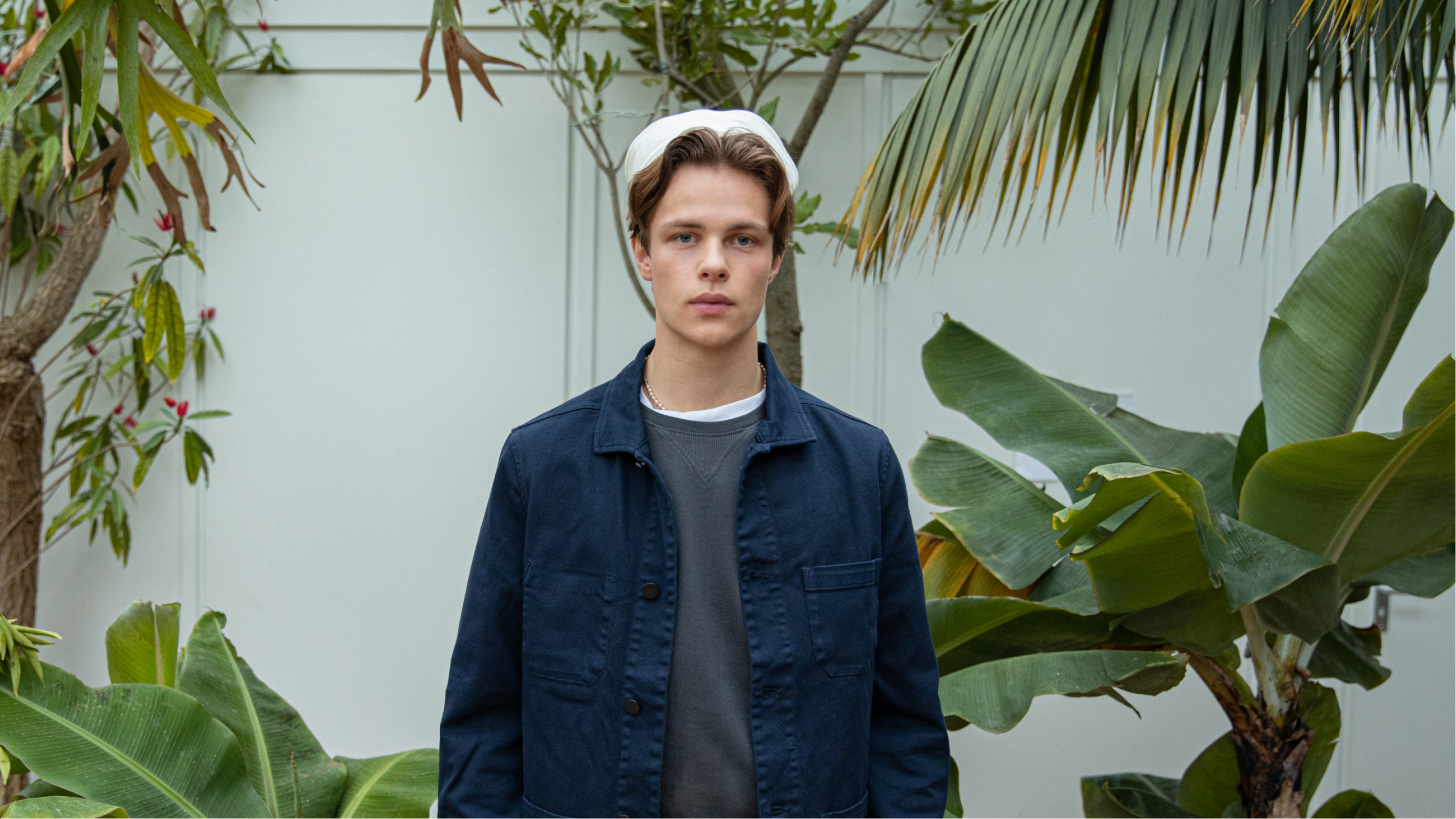HAPE
Creating a 3D NFT walking HAPE
Many NFTs have come and gone, but HAPE PRIME has taken the digital fashion landscape to a whole new level with each avatar being fully 3D, dressed in attention-grabbing outfits and bringing, most importantly, some serious attitude.
Find out how DOGSTUDIO/DEPT® took on the challenge set by Digimental, the founder and lead designer at HAPE, to elevate the HAPE’s digital presence. The solution? The HAPE WALK.
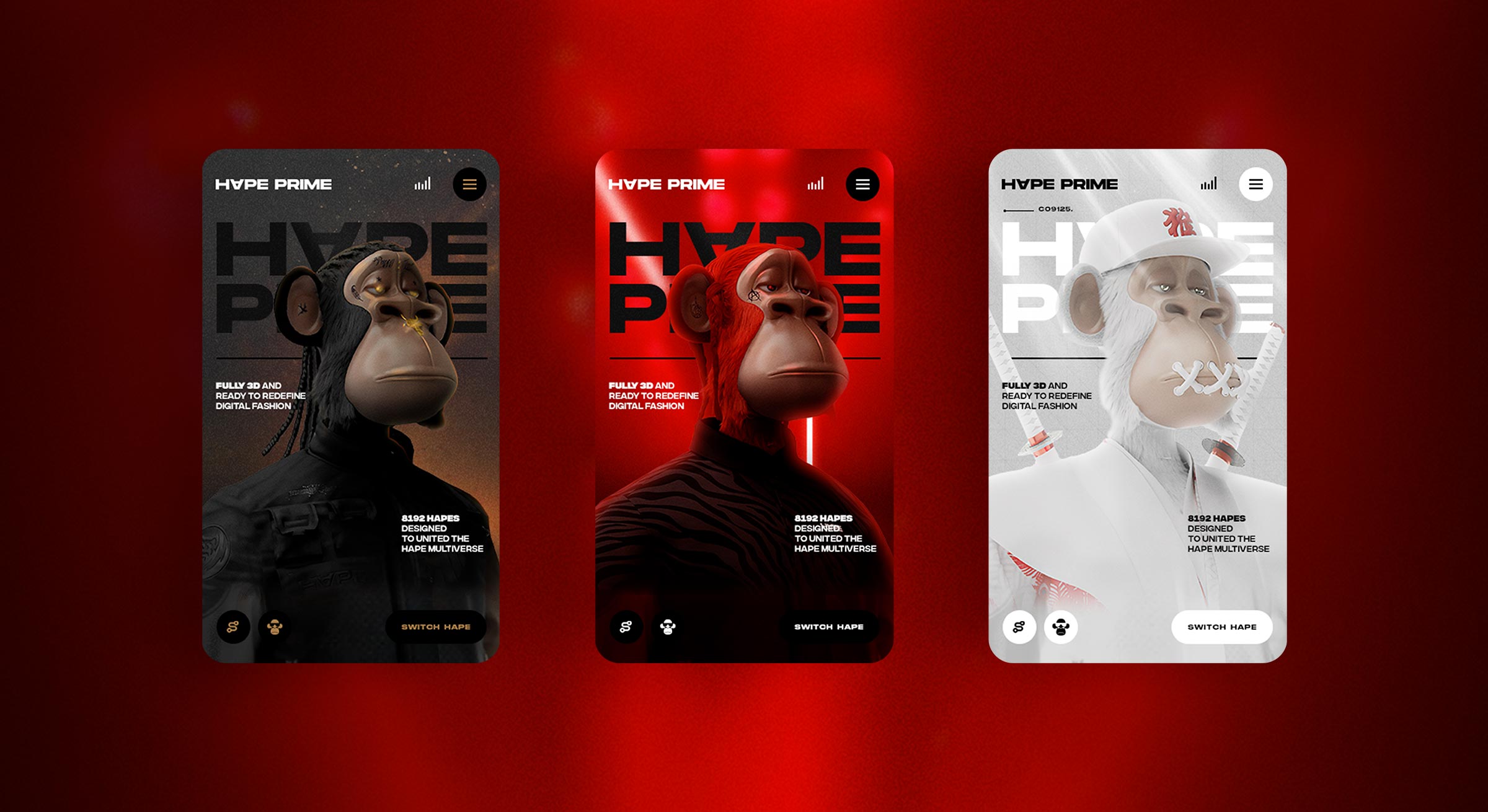
How HAPE leveraged WebGL micro-framework
To create the HAPE ecosystem, DOGSTUDIO/DEPT® worked with an already existing design; a well known anthropoid in the metaverse sporting fashionable clothes and a strong personality. With this in mind, the team had to design and build a website to give the HAPEs motion within a fully immersive experience.
The team went beyond the classic content-focused pages presenting NFT projects, using a new custom OGL WebGL micro-framework. OGL, a WebGL library used by developers who prefer minimal layers of abstractions, was customised into a micro-framework with specific in-house modules. These modules included a homemade PBR rendering engine, skinning, post-process and animation player, bringing the HAPE family to life.
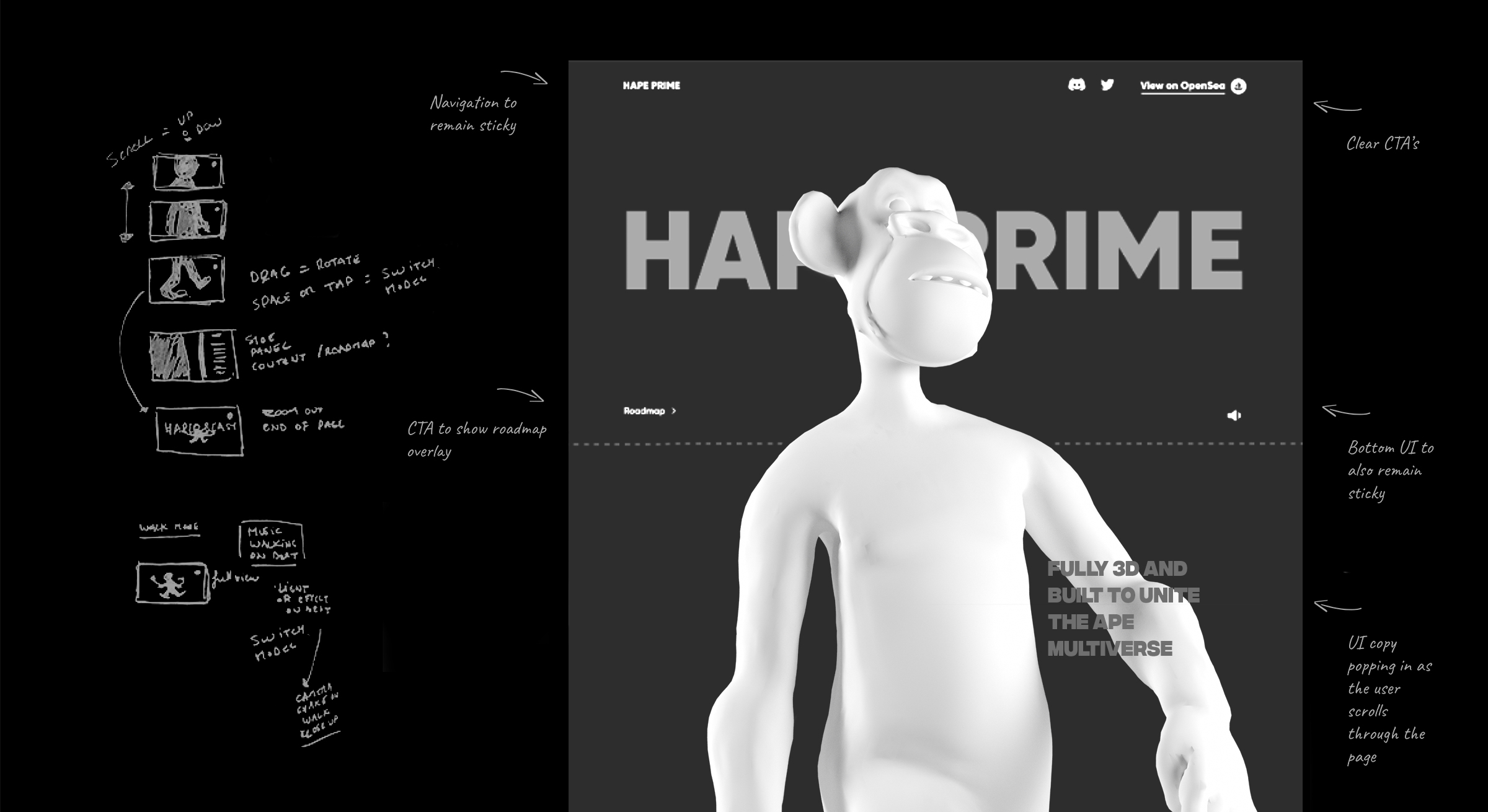
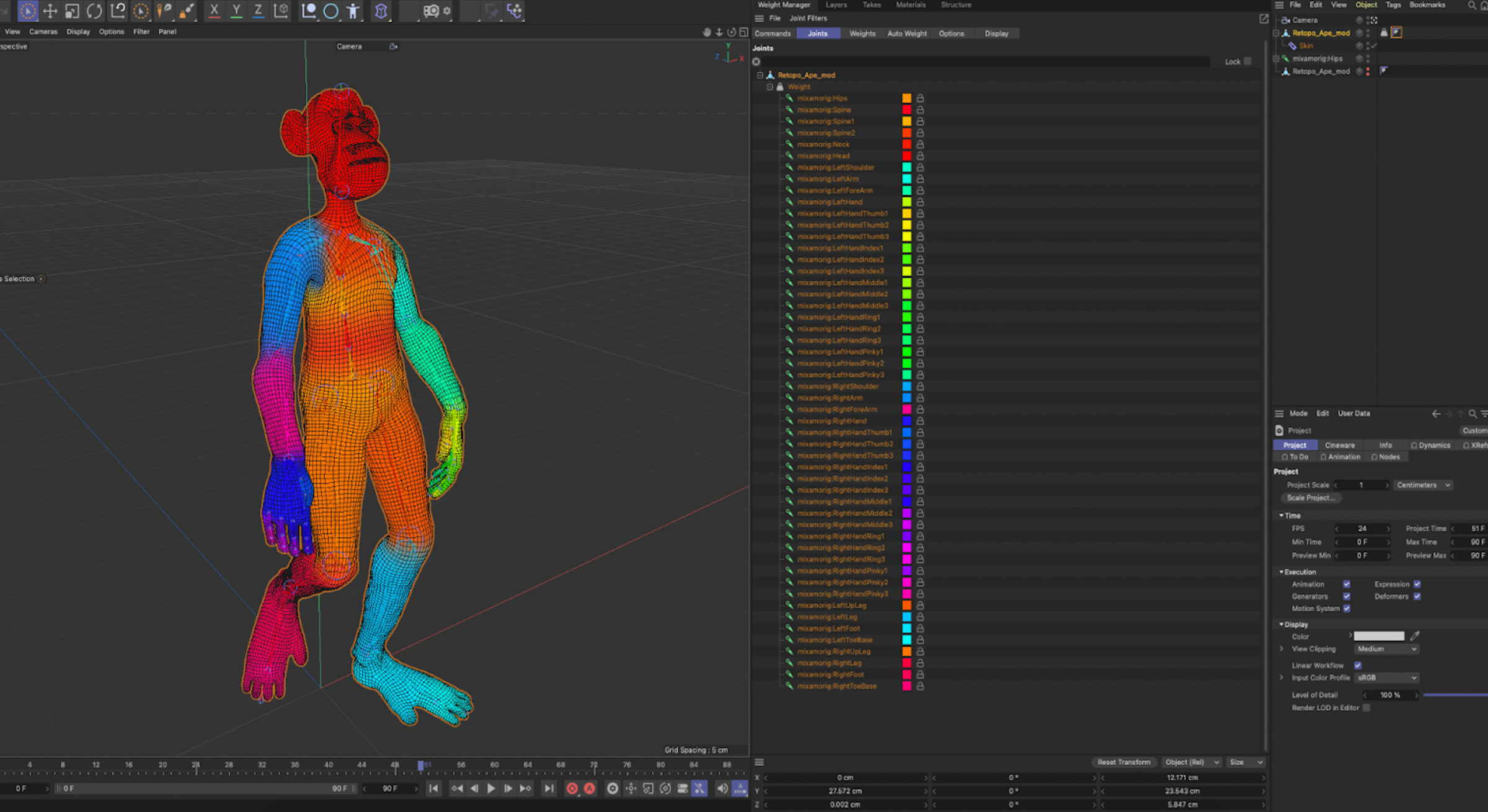
Web design inspired by high fashion
With a website design inspired by high fashion magazines, the team was able to perfect the HAPE strut; an immersive walk which users use to scroll through the page and control their experience through rotation and different zoom levels. Every HAPE has a different style, attitude and personality, all of which were chosen by the design and development teams using an extensive Graphic User Interface.
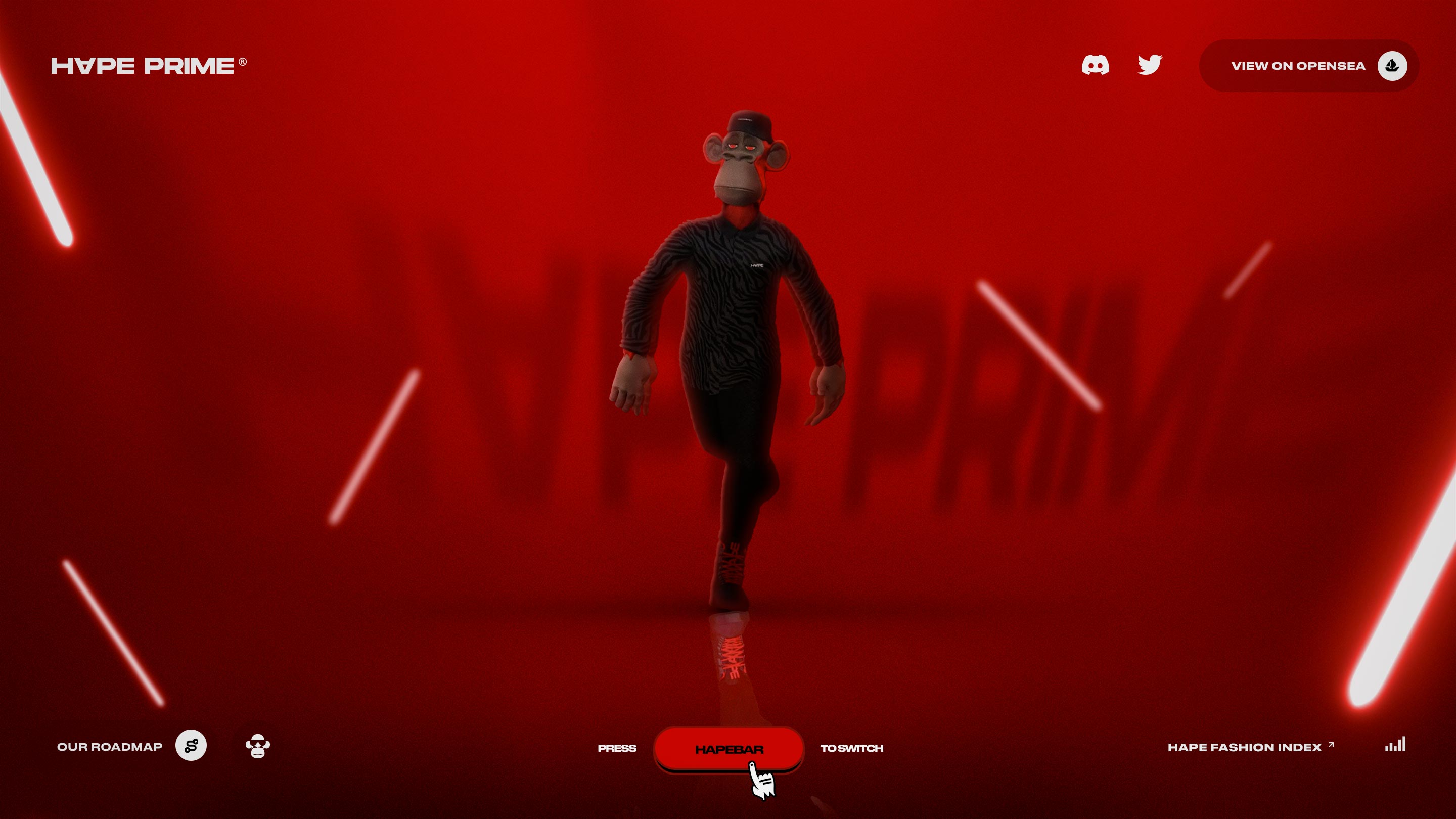
The immersive experience was completed with custom music in rhythm with the HAPE strut, the cursor and its click animation, the Hapewalk icon, and bold CTAs.
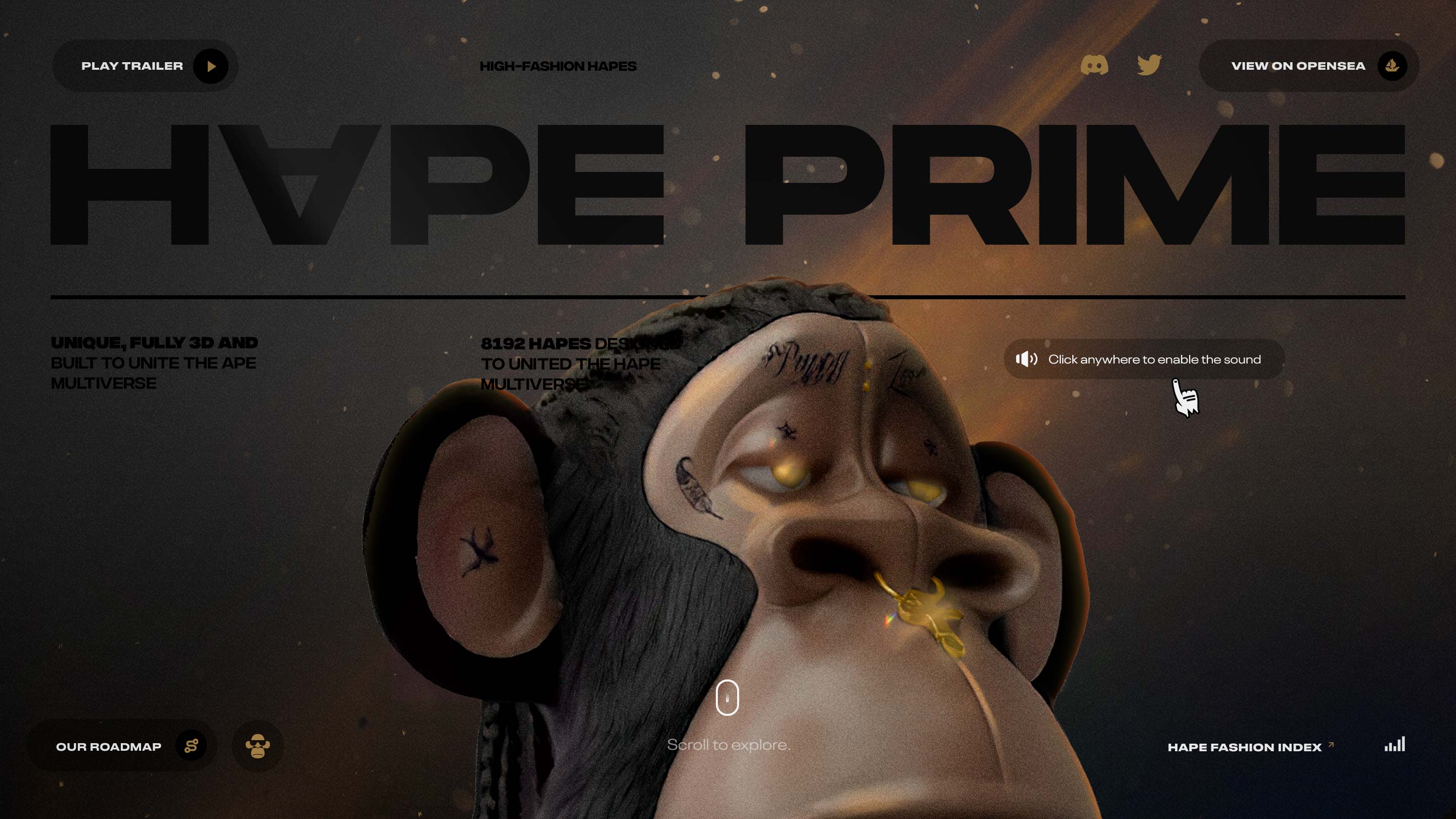
+57K
visitors during launch month
4.58
minutes average time spent on the site on launch day
+2K
comments, likes and retweets on announcement post
4
weeks to build the platform
Questions?
CEO / CCO at Dogstudio

